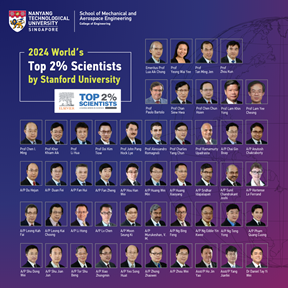NTU Study Highlights the Versatility of 3D Printing in Addressing Global Supply–Demand Imbalances caused by the COVID-19 Pandemic
A recent collaborative study by researchers from School of MAE, HP-NTU Digital Manufacturing Corporate Lab, SUTD and HP Labs have highlighted the versatility of 3D printing in addressing global supply–demand imbalances caused by the COVID-19 pandemic. Disruptions in manufacturing and transportation during the pandemic has posted extensive logistical challenges resulting in critical shortages of essential goods.
The study has highlighted that the digital versatility and quick prototyping of 3D printing enables a swift mobilization of the technology and hence a rapid response to emergency situations. This is evidenced by the broad spectrum of 3D-printing applications in the fight against COVID-19 includes personal protective equipment (PPE), medical and testing supplies, personal accessories, visualization aids, emergency dwellings, etc.
The study suggests that 3D printing can contribute to a greener and more environmentally friendly future. By enabling the capability to produce parts on demand, 3D printing can reduce waste and inventory. Creativity can be unleashed and sustainable solutions that can carry the technology forward in the post-pandemic ‘new normal’.
The study has recently been published in Nature Reviews Materials.

Figure 1. Innovative 3D-printted devices and products







